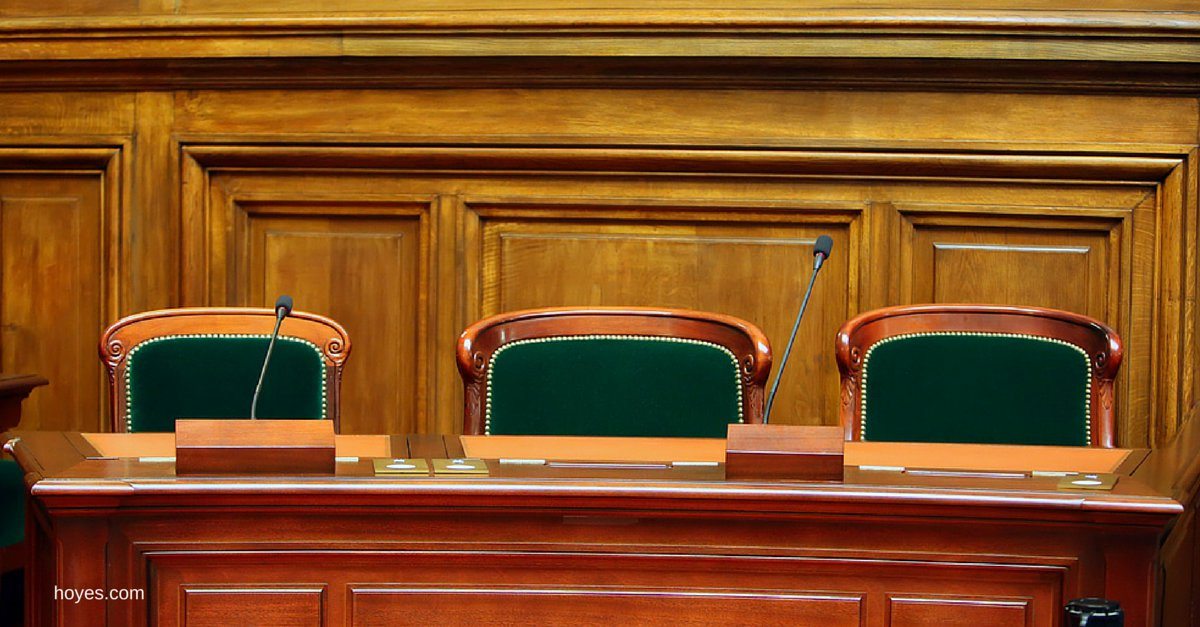
Ted Michalos, co-founder of Hoyes Michalos & Associates, was part of a three-person panel with Calvin J. Ho of Gowling Lawfleur Henderson and Sheldon Title, LIT with MNP Ltd. presenting material about personal bankruptcy discharge to the Ontario Bar Association. Their presentation was summarized in an article in the National Insolvency Review “Personal Bankruptcy Discharges: Preparing For And Arguing An Opposed Discharge”.
You can read the full article here: National Insolvency Review June 2015 or highlights below:
Table of Contents
What is a Bankruptcy Discharge?
A discharge releases the bankrupt from all claims provable in a bankruptcy under section 178(2) of the Bankruptcy and Insolvency Act (BIA). Certain claims are not discharged and these are listed under s. 178(1) of the act. A more complete understanding of debts discharged by bankruptcy can be found in our article ‘Debts Eliminated By Bankruptcy”.
When is an Automatic Discharge possible?
Under section 168.1 of the BIA a bankrupt is eligible for an automatic discharge after:
- 9 months for a first-time bankrupt with no surplus income;
- 21 months for a first-time bankrupt required to pay surplus income;
- 24 months for a second time bankruptcy with no surplus income;
- 36 months for a second time bankruptcy required to pay surplus income.
What is a Bankruptcy Discharge Hearing?
A creditor, the Trustee or the Office of the Superintendent of Bankruptcy (OSB) can oppose a discharge under section 168.2(1). Any party opposing a discharge must give notice in a manner prescribed by the BIA and once this is done, the Trustee must apply for a discharge hearing with the court.
Once a hearing date is set, the Trustee must notify the creditors, the OSB and the bankrupt (the parties) of the hearing and must prepare a Report of Trustee on the Bankrupt’s Application for Discharge (called a 170 report). This report is filed with the court and a copy forwarded to the OSB, the bankrupt and any creditor who requests a copy within 10 days of the hearing. It is also ordinary practice for Trustees to send a copy to opposing creditors. This report contains the Trustee’s recommendation as to the bankrupt’s discharge.
The OSB may also prepare a report to the court if they are concerned with the bankrupt’s compliance with the requirements under the BIA.
What can be the outcome of a Discharge Hearing?
Under section 172 of the BIA, the court can:
i) grant or refuse an absolute order of discharge;
ii) suspend a bankrupt’s discharge; or
iii) grant an order of discharge subject to terms or conditions (make a conditional order of discharge).
In certain, though rare, circumstances the court may refuse a discharge.
When is a Discharge Hearing mandatory?
If a debtor owes over $200,000 in personal income tax debt, and this represents over three-quarters of the bankrupt’s unsecured proven claims, a discharge hearing must be held.
Preparing For A Discharge Hearing
From the Trustee’s Perspective
As an officer of the court, the Trustee represents all creditors. In addition to preparing the above mentioned report, the Trustee will assist the court with any factual information about the bankruptcy.
A Bankruptcy Trustee may oppose the discharge of a bankrupt where that individual has failed to meet all the duties as set out by the BIA or the Trustee has concerns surrounding eligible property of the bankrupt they are required by law to realize for the benefit of the creditors.
The Trustee can withdraw his opposition if matters are resolved to his or her satisfaction prior to the discharge hearing.
If a discharge hearing takes place, the Trustee will assist the bankrupt with procedural matters however the Trustee in not an advocate for the bankrupt and does not legally represent them.
From the Creditors Perspective
In addition to reviewing information from official bankruptcy documentation, creditors may submit written questions to the bankrupt prior to the discharge hearing to gain additional knowledge and information. Opposing creditors may use this information to factually establish that the bankrupt is not eligible for an automatic discharge.
Creditor opposition applications must be based in fact, not be frivolous and should generally not be made at the last minute.
Although a creditor can seek costs from the court, actual recovery will depend on the conditional order, including any payment requirements, made by the court.
From the Bankrupt’s Perspective
In order to be relieved of his or her debt obligations, a bankrupt must receive a discharge, either an absolute discharge or conditional discharge.
A bankrupt may represent him or herself, or may bring legal counsel.
If a bankrupt does not attend his or her discharge hearing, the court may order a ‘No Order’. The Trustee can then request that they be discharged from the file and the bankrupt will remain liable for all debts included in his bankruptcy as an undischarged bankrupt.
A bankrupt may appeal the outcome under certain circumstances and an appeal court can modify or change conditions imposed at the original discharge hearing.






